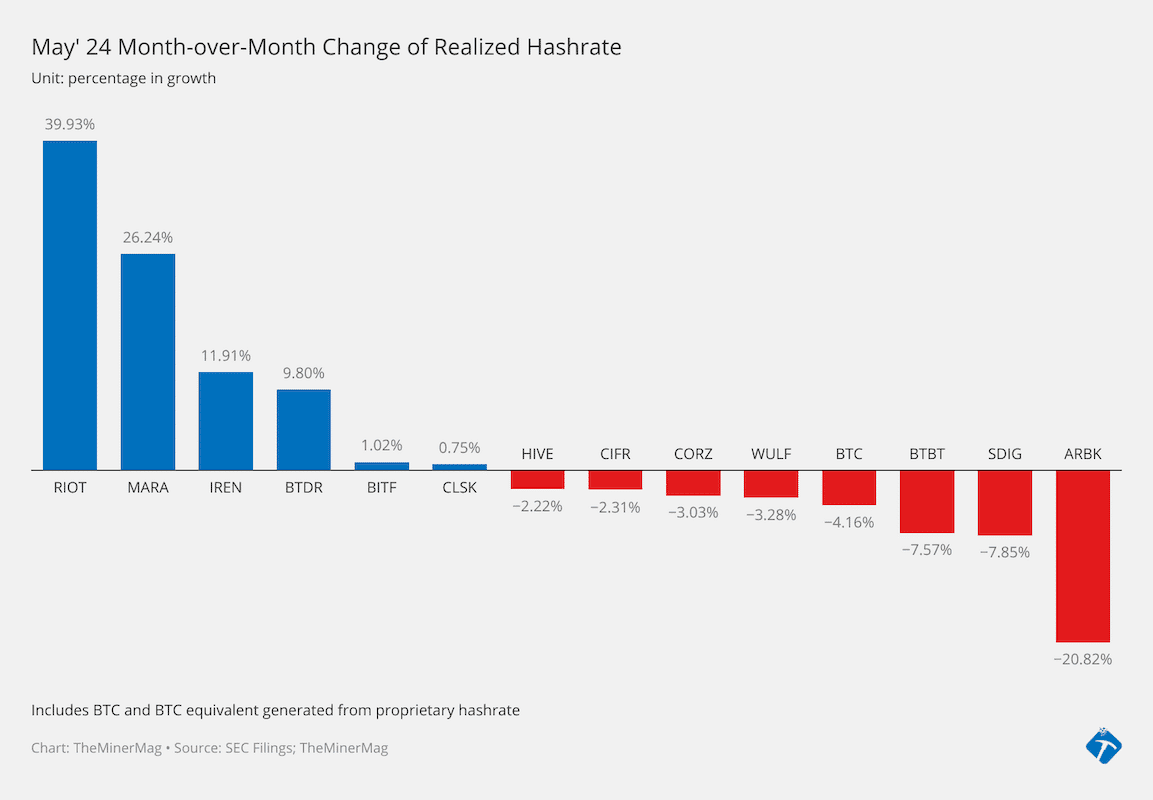These Miners Scaled Up (or Down) Hashrate Post Bitcoin Halving

Argo Blockchain, Stronghold Digital, and Bit Digital appear to have reduced their hashrate in May, as bitcoin’s halving event rendered older generations of mining hardware unprofitable, data shows.
Bitcoin’s average hashrate in May declined by 4.16%. But Argo, Stronghold, and Bit Digital experienced even larger drops in their realized proprietary hashrate, decreasing by 20.82%, 7.85%, and 7.57%, respectively, according to their monthly production updates.
This indicates that these three public mining companies have unplugged or retired a substantial portion of their mining hardware following bitcoin’s fourth halving event.
The realized proprietary hashrate for Argo, Stronghold, and Bit Digital fell from 2.29 EH/s, 3.59 EH/s, and 2.76 EH/s in April to 1.81 EH/s, 3.31 EH/s, and 2.55 EH/s in May, respectively.
Other companies like HIVE, Cipher, Core Scientific, and Terawulf also saw decreases in realized proprietary hashrate, though these declines were smaller than the network average as they continued their fleet upgrade processes.
For instance, Terawulf reported temporary site issues at its Nautilus facility in early May, which have since been resolved. The company expects to expand its operational capacity to 10 EH/s in June.
HIVE is underclocking its older miners in the 30 J/TH range to improve efficiency while deploying newly delivered S21s to remain “on track” to reach an interim target of 5.5 EH/s and 25 J/TH.
Core Scientific noted that it has deployed older miners, which were replaced by S21s earlier this year, at sites in Calvert City, Kentucky, and Pecos, Texas. However, they are subject to removal depending on bitcoin’s hashprice economics.
Meanwhile, several publicly traded companies with larger market capitalizations have increased their realized proprietary hashrate in the first full month after the halving.
According to their production updates, they achieved this by improving operational uptime (e.g., Marathon), trading proprietary hashrate for other utilities such as power credits (Riot) and cloud mining revenue (Bitdeer), or expanding their installed fleet hashrate (Iris Energy and CleanSpark).





